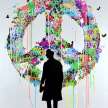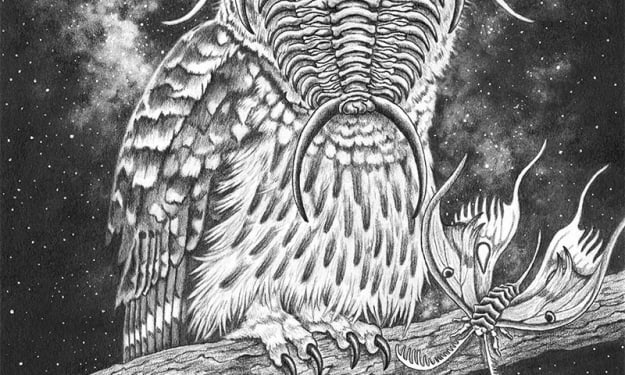The Colours of Change
“If you could walk a mile in my [rainbow] shoes, you would have a better understanding of what it feels like to be me, the hate you cast, the looks you give, the way I can feel your judgment fall upon me even when we have just met…”

Good day (I’m African, so we must greet first even in an article.). I was watching this Breakfast club conversation about trans gender people and the LGBTQ+ community surrounding it. The focus is on the transgender community within African Americans. I have to say it was informative, and broadened my views about the topic as I had always thought that having no problem with LGBTQ+ people was an okay stance on the topic, but that has been until now.
If you could walk a mile in my rainbow shoes (that was the first tile of this article), and just because it didn’t make it to the top, didn't make those words any less impactful. I am a proud cis heterosexual black male, so please forgive me if I may come off as naive to certain realities facing the LGBTQ+ community. I am alive to the fact that I will never fully comprehend and understand the intricacies of the discrimination people in these communities may face, but I will convey my knowledge to the best of my ability. In this article, I am going to LGBTQ+ people living in Africa, as the spectrum is very broad when talking about sexuality, and the social impact of the movement for equal rights.
“If you could walk a mile in my [rainbow] shoes, you would have a better understanding of what it feels like to be me, the hate you cast, the looks you give, the way I can feel your judgement fall upon me even when we have just met…”
“Being a transgender woman is spiritual, it has nothing to do with having a dick” David Johns (the breakfast club). In my opinion, the issues surrounding the LGBTQ+ community are to black people as racism is to whites. These issues are often swept under the carpet, and it is a common theme in households not to talk about it if it is a non-issue (if no one in the family is LGBTQ+). We see this more rampant in Africa as was expressed by the movie “Inxeba: the Wound”(2017) which is a South African movie that sheds a light on gay men going through the cultural ritual of becoming a man, and how they express themselves within such a setting. The backlash was immense from the public (mostly men from the Xhosa tribe) whom this movie was set about, and they saw it as blasphemy against their culture, and their thousands of years of doing things. This wasn’t the first time a gay character had been portrayed on the big or small screen in South Africa, one of the more memorable being the soap opera Generations at the height of its popularity (it was the most viewed TV show in the country) which in 2009 introduced a gay romance (which saw its viewership dip as a direct result of introducing this gay couple, and then went up again in the following years). A transgender character was then later introduced in 2015, with her on-screen “transformation” taking place, and then finally "concluding" surgically in late 2017. It is very important to note that Generations is broadcast on a state-owned Television channel in South Africa.
The above mentioned is important to understand, as widely all over the African continent LGBTQ+ issues are considered as “things” that emanate from the west. "African children see these things in western movies and shows, and want to emulate them back in their African home countries," this is the rhetoric that is often conveyed and misconstrued to fit into "the African ideology" of what being a man or a woman really is or means. And this then leads us into this blind predicament that we face today, people praying the gay away, incarcerations because of homosexual behaviour, and the awful murders that take place across the continent. Homosexuality is still illegal in most countries in Africa, or same-sex couples aren’t even recognized, these include countries like Algeria, Egypt, Libya, Morocco, Liberia, Tunisia, Nigeria, and where it carries the death penalty in Somalia and Sudan to name a few. This attitude is perhaps the reason why it is so hard for so many LGBTQ+ people living in these countries to speak out and live their truth as we (cis people) do.
The South African problem: Gay rights have been recognized in South Africa since 1998 with the UN accord, adoption for same-sex couples since 2002, and gay marriage as of 2006 (this is not to be confused with gay unions which were part of the 1998 accord). The above mentioned includes anti-discrimination laws that are interpreted to include gender identity; legal gender may be changed after surgical or medical treatment, so on paper you can say that we are miles ahead of most of the rest of the world, but that is the problem, it’s just on paper, and the reality is that the implementation of these laws has not been up to par in rural communities, and the education around LGBTQ+ people has been less than sufficient. Again, the same mentality comes up that if “you do not promote the gay, maybe it will go away.” This same mentality might explain why the studies are so scarce, even in South Africa (where we have some of the world's top universities), into the psychological damage LGBTQ+ people may face or be subject to.
I would love to delve in deeper, and express my love and hate for some aspects of the LGBTQ+ movement, what I think they are doing right, and what I think can be improved. The fact is that no movement is perfect, not one led by the ANC, Black Panthers, nor the Civil Disobedience movement led by Mahatma Gandhi. The fact that a movement is a force for good should never exclude it from the scrutiny that could help it weed out corruption and tyranny, you cannot build a house on an uneven foundation, so when I say transgender women shouldn’t be competing in sport against cis women, or that the assignment of gender at birth is necessary, and those records should be kept for the sake of science, or the science behind certain hypotheses should be rebuked with other scientific studies, sound and proven fact, and not the sociology of the day. I am truly not speaking down or against the movement, but I recognize that greed has no colour, gender, or sexual orientation.
In conclusion, I stand with the LGBTQ+ community proudly, and I recognize the strides that still need to be made across the world in my continent and the country that I love so dearly. I do believe that the first step is to speak and get politicians proactive about change. I am done saying that I am just okay, or I don’t care what sexual orientation or gender people define themselves as. I now see you as the person you are, and pass no judgment based on your gender or sexual orientation, but based on the substance of your thought, and what I can learn from you to grow and be better.
The Bittah Dreamer
About the Creator
Bittah Dreamer
Hi I'm Bongo Kosa but I also go by the name "Bittah dreamer", I'm passionate about life! Anything from the latest song that gets me up dancing to the geo-, socio- or economic issues concerning people...It's a journey, let's walk together.






Comments
There are no comments for this story
Be the first to respond and start the conversation.